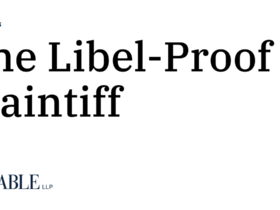Complex cases of defamation require you to seek the assistance of a skilled defamation litigation lawyer, as laws seem to strike a balance between free speech and reputational protection. A defamation act is defined as the publication of material damaging another’s reputation.
It can arise from different forms of communication, including newspapers and social media. However, the law provides defences in the form of truth and the public interest.
These are particularly important in defamation cases of media outlets, journalists, or any individual expressing opinions on public matters. Dive into this piece to understand the role of these two defence mechanisms.
Understanding Defamation
It happens when a statement lowers the reputation of a person in the eyes of a reasonable person. To succeed in such claims, the plaintiff must prove three things:
- The statement is capable of defaming.
- The plaintiff is mentioned in the statement.
- The material was shared with at least one-third party.
- Legal defences, including truth and the public interest, will apply when these elements of a defamation claim exist.
Understanding the Defense of Truth
One powerful defence against defamation is that of justification. Through this one, a defendant can avoid liability if there is proof that the publication or statement is “substantially true.” However, it is more challenging to prove due to the burden of demonstrating the factual accuracy of statements.
For example, suppose a newspaper in Perth publishes an article that implicates the involvement of a public official in some kind of corruption. In that case, it must show evidence or proof of the truth concerning the claim. For instance, it may use court records or verified testimonies to prove the correctness of the claim. Without such proof, the defence may fail, and liability may be found against the publisher for defamation.
A publication defamation lawyer can help gather evidence and present it in a manner that shows a statement to be true. This can be very helpful in proving the truth of a matter when it is hard to prove.
Understanding the Defence of Public Interest
The public interest defence enables defendants to argue that publishing certain information serves the community, especially when such information is based on topics like political conduct, corporate responsibility, or public health and safety. This defence was substantively strengthened through amendments in the Defamation Act in 2021, introducing the public interest defence as a better fit with international standards.
In this defence, the two elements that defendants have to prove are:
- The publication was of public interest.
- They reasonably believe that the disclosure of material was in the public interest.
- This can be helpful, especially for journalists and the media. They can argue that disclosing the information would be in the public interest. However the term “public interest” is not an easy definition to give as it keeps on changing in various contexts. The courts always balance relevance, significance, and the conduct of the publisher.
Practical Challenges in Defending Defamation Claims
Whereas both truth and public interest form strong defences, these again entail practical problems. The burden of proof for truth can be very challenging for the defendant as they must prove that each of their statements is accurate. The public interest also requires that the publisher behave responsibly, verify facts about information, and, when appropriate, allow the subject to reply.
Here are some important things to keep in mind about these claims:
Journalistic Standards and Professional Conduct: Media professionals should adhere to ethical standards. Courts may consider whether the publisher could follow the best practices related to checking facts, verifying sources of information, and presenting with objectivity.
Impact of Social Media: The pervasiveness of social media has further increased the risks of defamation. People post content over the internet without editorial scrutiny, which may expose people to defamation claims. A defendant who invokes the truth or public interest defence must still satisfy the legal requirements of a traditional publisher.
Conclusion
In our final statement, we would like to state that a defamation claim lawyer can ensure that you have a strong case to defend yourself. They will help formulate a strategy based on the truth and the concept of the public interest to navigate the verdict in your favour.















